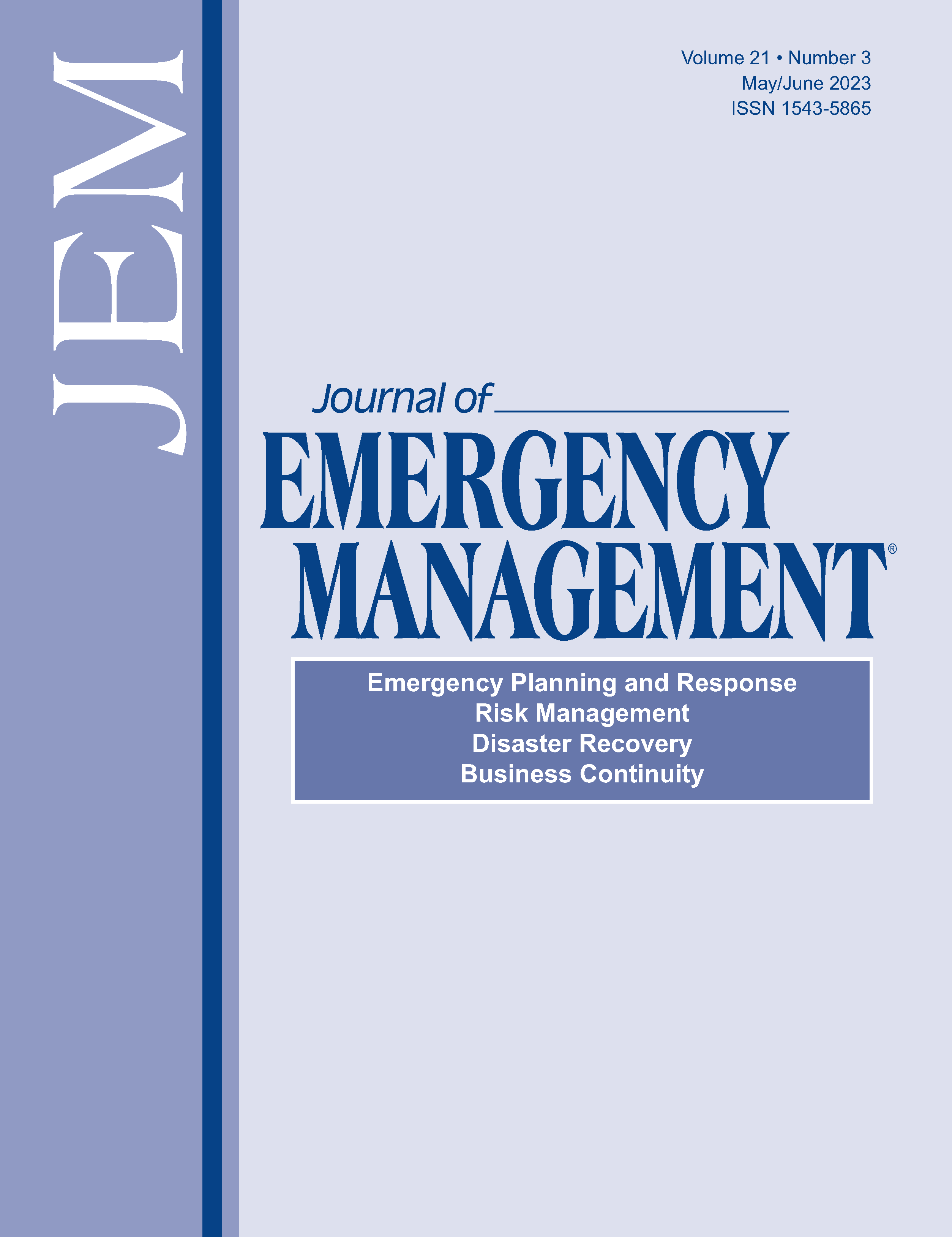Post-COVID-19 visions: A new work–life model
DOI:
https://doi.org/10.5055/jem.0688Keywords:
COVID-19, gender equity, health equity, mental health, window of opportunity, future of work, flexible work arrangements, sustainabilityAbstract
The coronavirus disease 2019 (COVID-19) pandemic has amplified concerns about gender equity, access to health services, and extractive rather than regenerative systems. In the spring and fall of 2020, a two-phase exploratory survey was conducted to inquire about people’s desires for the future and reflections on the pandemic. Respondents to the survey, more than two-thirds of whom were women, and more than 85 percent having earned a bachelor’s degree or higher, reported feelings of isolation and intensification in remote work, stress in caring for children restricted to their homes while attending virtual schooling, and societal inequities in the health system. The survey also identified that respondents expressed great resilience and optimism about the future. There is a window of opportunity for change after a disaster takes place, and respondents hope to take advantage of this time to emerge from the pandemic in a position to not only survive but flourish. This article describes the results of the surveys and makes recommendations for using this window of opportunity to address the concerns of access to healthcare and gender equity to build a more sustainable world.
References
Rose A: Resilience and sustainability in the face of disasters. Environ Innov Soc Transit. 2011; 1(1): 96-100. DOI:10.1016/j.eist.2011.04.003.
Brundiers K: Disasters as opportunities for sustainability: The case of Christchurch, Aotearoa New Zealand. Sustain Sci. 2018; 13(4): 1075-1091. DOI:10.1007/s11625-017-0523-4.
United Nations Department of Economic and Social Affairs: Sustainable Development Goal 5. Available at https://sdgs.un.org/goals/goal5. Accessed March 1, 2021.
Leung TY, Sharma P, Adithipyangkul P, et al.: Gender equity and public health outcomes: The COVID-19 experience. J Bus Res. 2020; 116: 193-198. DOI:10.1016/j.jbusres.2020.05.031.
Milliken FJ, Kneeland MK, Flynn E: Implications of the COVID-19 pandemic for gender equity issues at work. J Manage Stud. 2020; 57(8): 1767-1772. DOI:10.1111/joms.12628. Accessed June 1, 2021.
Weber L, Fuhrmans V: How the coronavirus crisis threatens to set back women’s careers. The Wall Street Journal. September 30, 2020. Available at https://www.wsj.com/articles/how-the- coronavirus-crisis-threatens-to-set-back-womens-careers-11601438460. Accessed June 1, 2021.
Brundiers K, Eakin H: Leveraging post-disaster windows of opportunities for change towards sustainability: A framework. Sustainability. 2018; 10(5): 1390. DOI:10.3390/su10051390.
Kingdon JW: Agendas, Alternatives, and Public Policies. 2nd edition, Pearson new international edition. London: Pearson, 2014.
Birkmann J, Buckle P, Jaeger J, et al.: Extreme events and disasters: A window of opportunity for change? Analysis of organizational, institutional and political changes, formal and informal responses after mega-disasters. Nat Hazards. 2010; 55(3):637-655. DOI:10.1007/s11069-008-9319-2.
Gilligan C: In a Different Voice: Psychological Theory and Women’s Development. Cambridge, MA: Harvard University Press, 2016.
Hakovirta M, Denuwara N: How COVID-19 redefines the concept of sustainability. Sustainability. 2020; 12(9): 3727. DOI:10.3390/su12093727.
United Nations Department of Economic and Social Affairs: Sustainable Development Goal 3. 2021. Available at https://sdgs.un.org/goals/goal3. Accessed August 10, 2021.
National Center for Chronic Disease and Health Promotion: Health Equity. 2021. Available at https://www.cdc.gov/chronicdisease/healthequity/index.htm. Accessed August 10, 2021.
World Health Organization: Social Determinants of Health. 2021. Available at https://www.who.int/health-topics/social-determinants-of-health#tab=tab_1. Accessed August 10, 2021.
Brundiers K: Leveraging disasters for sustainable development. Environment: Science and Policy for Sustainable Development. 2020; 62(1): 15-27. DOI:10.1080/00139157.2020.1687226.
Waples EP, Brock Baskin ME: Not your parents’ organization? Human resource development practices for sustainable flex work environments. Adv Dev Hum Resour. 2021; 23(2): 153-170. DOI:10.1177/1523422320982933.
Finn D, Donovan A: PwC’s NextGen: A global generational study: Evolving talent strategy to meet the new workforce reality. Published online 2013. Available at https://www.pwc.com/pwcnextgen-study-2013.
Saad L, Jones JM: Seven in 10 US collar workers still working remotely. Gallup, 2021. Available at https://news.gallup.com/poll/348743/seven-u.s.-white-collar-workers-still-workingremotely.aspx. Accessed January 15, 2022.
Melin A, Egkolfopoulou M: Employees are quitting instead of giving up working at home. Bloomberg Wealth, 2021. Available at https://www.bloomberg.com/news/articles/2021-06-01/return-tooffice-employees-are-quitting-instead-of-giving-up-work-from-home. Accessed January 15, 2022.
Boland B, De Smet A, Palter R, et al.: Reimagining the office and work life after COVID-19. McKinsey & Company. Published online June 2020. Available at https://www.health-revolution.org/uploads/1/0/6/7/106777763/reimagining-the-office-and-worklife-after-covid-19-final1_.pdf. Accessed January 15, 2022.
Mazzetti G, Schaufeli WB, Guglielmi D: Are workaholics born or made? Relations of workaholism with person characteristics and overwork climate. Int JStress Manag. 2014; 21(3): 227-254. DOI:10.1037/a0035700.
Kopelman RE, Brief AP, Guzzo RA: The role of climate and culture in productivity. In Schneider B (Ed.): Organizational Climate and Culture. Hoboken, NJ: Jossey-Bass, 1990.
Van Wijhe CI, Schaufeli WB, Peeters MCW: Understanding and treating workaholism: Setting the stage for successful interventions. In Burke RJ, Cooper CL (Eds): Risky Business: Psychological, Physical and Financial Costs of High Risk Behaviour in Organizations. Aldershot, Hampshire, UK: RGower Publishing, 2010.
Ribarovska AK, Hutchinson MR, Pittman QJ, et al.: Gender inequality in publishing during the COVID-19 pandemic. Brain Behav Immun. 2021; 91:1-3. DOI:10.1016/j.bbi.2020.11.022.
Ehrenfeld J, Hoffman AJ: Flourishing: A Frank Conversation about Sustainability. Redwood City, CA: Stanford Business Books, an imprint of Stanford University Press, 2013.
Published
How to Cite
Issue
Section
License
Copyright 2007-2025, Weston Medical Publishing, LLC and Journal of Emergency Management. All Rights Reserved.
Leave Nobody Behind: Emergency Management in a More Inclusive Way is a trademark of Journal of Emergency Management






